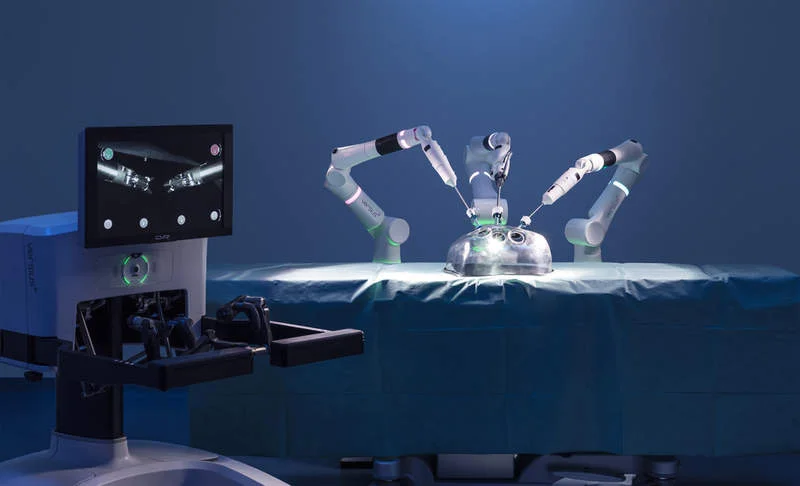I’m sure many of you have heard of ChatGPT, the popular chatbot that has taken the world by storm. Personally, this intricate language model has more than once blown me away. However, as a “forever student” of medicine, I always look to shaping new trends’ potential in the medical field. So, when I thought about the potential of ChatGPT in healthcare, I knew I had to do some research.
If you are a student reading this, you must know of ChatGPT’s incredible skill. It can write essays, proofread, and generate ideas — concepts that past generations would have never imagined. You can even have a full-on conversation with it. What amazes me the most, and I think a lot of other people as well, is the fact that you can give ChatGPT a prompt — almost any prompt — and it will deliver.

Besides the classroom, ChatGPT holds real-world purpose. Major companies have incorporated it to improve customer service. Expedia, a notable company for travel-planning, has now allowed users to have a conversation with ChatGPT to facilitate vacation planning. Companies like Duolingo are using it for coding. Truth is, this chatbot can provide services for almost any business need. But, what about ChatGPT in healthcare?
Potential in the Near Future
To look at what ChatGPT can accomplish quickly, it is important to analyze its current strengths. ChatGPT is an excellent search engine that can produce formal writings, casual conversations and rapid results. With this in mind, ChatGPT has a good chance of being used to publish formal research articles. It can give staff updates on information, or assess a clinician’s medical knowledge. In fact, the chatbot managed to pass the U.S. medical licensing exam (USMLE) without any previous training — a feat that current medical students struggle in.
Potential in the Far Future
In the far future, providers can use ChatGPT for formal diagnoses. This could help people requiring urgent care in the already-inefficient hospitals in Canada and the U.S:
According to a poll in Statista in 2022, 63% of respondents in Canada believe that there is not enough medical staff and 47% believe that wait times are far too long. In fact, that same year showed the average wait time to see a physician in Canada was 27.4 weeks. This was compared to America’s 26 days and Singapore’s 17 minutes! To make matters worse, 72.9% of all physicians during the COVID-19 pandemic reported burn-out. While it is true that no one predicted a pandemic, the strain it has caused on the Canadian healthcare system reveals a deep-rooted problem that has troubled Canada years before. The American healthcare system, although slightly better, also needs to change.
The gradual advancement of ChatGPT could allow it to relieve some of the workload of medical staff by assisting patients with non-life-threatening concerns and helping with the research process. The Buoy Health chatbot is a good example of this.
Limitations and Concerns
One major concern about ChatGPT and other chatbots is the lack of credibility. According to some sources, the chatbot gave false answers 52% of the time. Not only would giving false information endanger the well-being of patients and encourage the spreading of misinformation, it also opens hospitals up to the avenue of lawsuits. Ideally, future advanced systems could fact-check ChatGPT’s responses.
Additionally, ChatGPT lacks emotional intelligence. It cannot empathize with a patient on a human level beyond a simple “I’m sorry to hear this,” nor could it detect subtle social cues that may indicate a patient is uncomfortable or lying. With progressive development in AI, however, ChatGPT could possibly overcome this hurdle.
Current Applications
It is important to know that while ChatGPT’s potential applications are indescribably great, the chatbot in its current version holds crucial limitations and as such, is not officially a recognized tool in medicine. Patients should take ChatGPT’s answers with great caution and always seek an expert before implementing any of the chatbot’s suggestions. Still, healthcare providers could leverage ChatGPT to make their lives easier. Dr. Benjamin Tran, for example, posted a video about how doctors could facilitate patient care through specific prompts.
Personal Insight
Personally, my outlook on this chatbot is optimistic and wary. Done correctly, using ChatGPT in healthcare has the potential to revolutionize the industry. It can improve its efficiency, lower the workload of medical staff and improve their mental health, and even save lives. It is important to consider possible dangers and concerns on ethics and legality every step of the way. That being said, let’s work toward a safe, AI-driven future — one that benefits us, not harms us.
*This article was not written by ChatGPT…but could you tell?*


